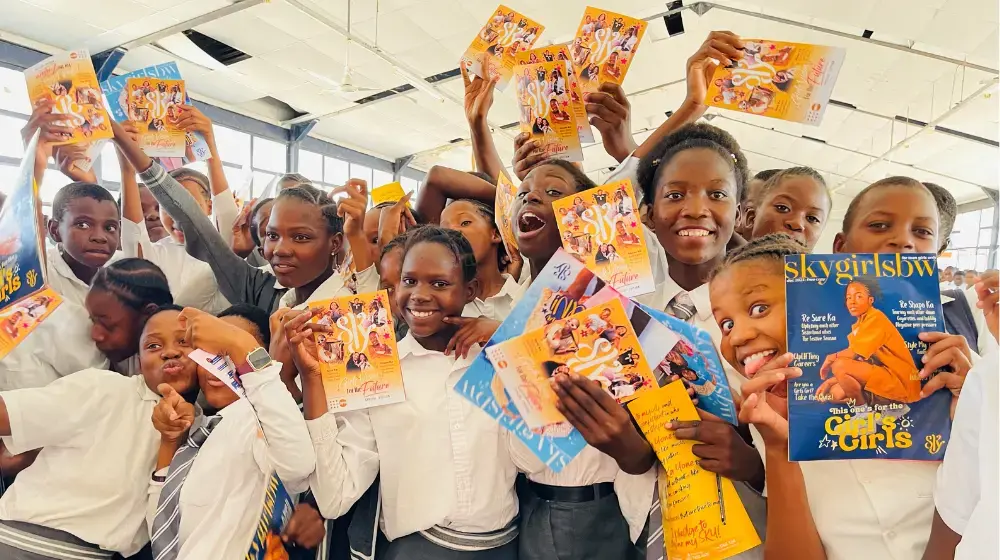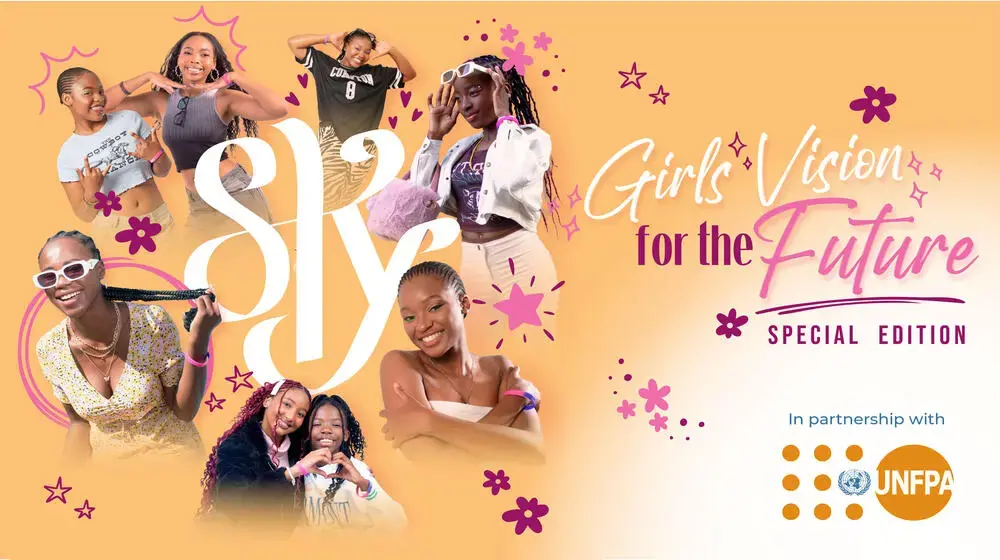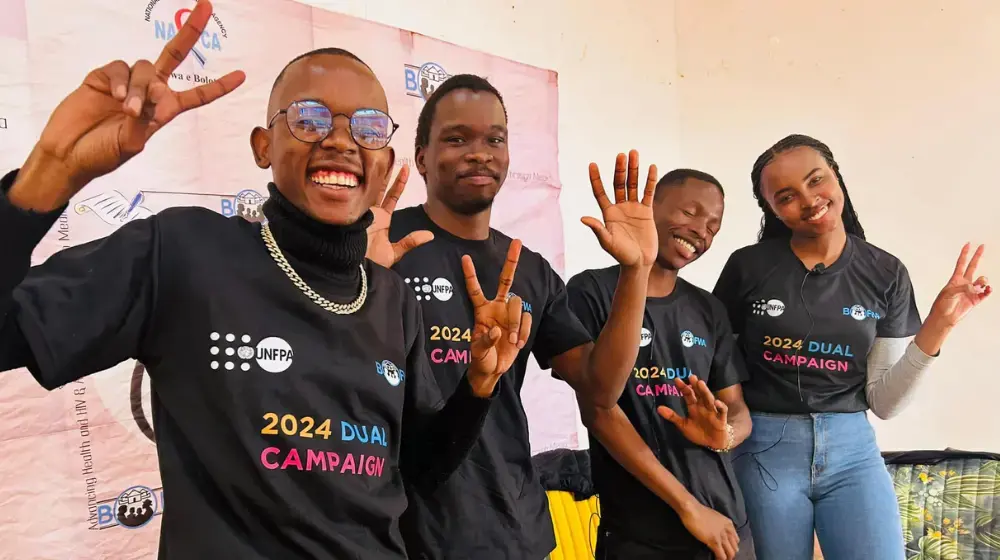The SRH programming training for young people that was held in Mahalapye from 22 - 26 April 2013 brought together 13 participants; youth centre managers, peer educators & youth nurse (Mahalapye Youth Clinic). The purpose of the training was to strengthen knowledge base on evidence based SRH programmes for young people as well as strengthen skills of managers to effectively implement a youth programmes. The training provided a timely opportunity to ensure that the project delivers evidence based programme underpinned by what is considered relevant approach to reach young people with correct information and skills to effect change on key behaviours.
Through the training, youth managers had the opportunity to revisit key aspects on running a youth programme and evidence on what works well in implementing a youth programmes.; characteristics of an effective programme , sexuality education including actual rolling out of a sexuality education programme for in and out of school youth. This included streamlining the content of the project to ensure that all those implementing the project are guided by the same approach as well as using identical content during delivery of activities with the young people. Participants were taken through current information on among others; status of adolescents and young people in Botswana, HIV infections risk of young women and girls including possible responses of improving HIV prevention programming for girls. The training adopted an interactive approach; with more focus on learning by doing. The content of the training will be based on the UNFPA approved YPeer manual on Peer education and the It's all One Curriculum, Vol 1: Guidelines for a unified approach on sexuality, gender, HIV and Human rights.
It was evident throughout the training that participants appreciated the training particularly understanding of what is expected of them and how to reach young people with correct, uniform messages. The challenge throughout the youth centres has been lack of uniformity in messages shared with young people. The training therefore brought uniform content that each manager and peer educator has to follow when delivering sexuality education on the following; Increasing knowledge to Change behaviour, Risk & Protective Factors that Affect sexual behaviours, Attitudes & Values about sex, Attitudes & Values about sex, Perception of risk to change behaviour, Improving Intentions to change behaviour, Self- efficacy & skills to change behaviour, The Body, puberty & Reproduction, Gender- (norms, roles), GBV including sexual coercion, Interpersonal relationship- a satisfying & respectful. Participants were taken through skills building on key aspects on SRH programming including; condom demonstrations for both male and female condoms,
Not all participants were comfortable with demonstrating condom, particularly female condoms. They showed limited information on how long the condom can remain in a one's body before sexual encounter. Some had difficulty on public speaking. These activities were repeated to ensure that all were confident in demonstrating how a condom is used and that they are able to relay messages confidently to young people. It was encouraging to realise that the training was not only geared towards equipping participants with information and skills but it challenges each one of the participants to reflect on their own lives. One participants after a session on a satisfying and respectful relationship indicated that ‘the training makes one to look through their own relationship and perhaps change some things'.
During the training participants had the opportunity to visit the Mahalapye Youth Clinic which started operating in March 2010. Services offered include general consultations, pap smear, couple counselling including HIV counselling and testing as well as for enrolling in family planning. Post abortion care is only offered at the hospital with necessary equipment. Outreaches to schools are often done in partnership with the youth centre. The youth clinic reaches to over 60 in week during school terms. The youth nurses highlighted a number of challenges that they deal with as they continue to serve the young people of Mahalapye. These included; low access of services by males, shortage of space particularly for HIV counselling, limited activities for HIV negative young people; there is limited follow up to ensure maintaining of a negative status, no entertainment for users of the clinic, no peer educators due to lack of funds to pay them. Young people in Mahalapye are reported to be abusing a local drug named kubere which is sold around the village. The training closed on a high note with participants requesting that there is need for more refresher trainings. They exhibited high energy and motivation to go serve the young people with renewed energies and clear focus. Following the training, a support visit will be undertaken to the youth centres to check progress and support implementation.




